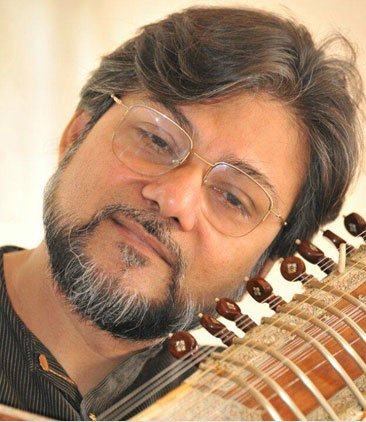Profile

Journey
The story begins in 1968 when a six-year-old boy from a family of industrialists in Kolkata, India, was initiated to SITAR under GURU Pandit MONOJ SHANKAR of MAIHAR GHARANA - to pursue music as a hobby. Intensive training, rigorous practice & above all, Destiny chalked out his career as a professional musician, who entered the SIXTH DECADE in Life's Journey in January 2022 and enjoys world-wide acclaim.
Music-lovers rejoice as they find the 'Maihar Magic' lives on - beyond Ravi Shankar & Nikhil Banerjee - promising more heart-touching melodies in the years to come.
Performances at major music festivals in all five continents, lecdems & workshops at reputed universities, with students across geographical borders, leave Partha a well-travelled man, rich in experience and a realization - that there is always a lesson to be learnt every day.
Appreciation of discerning listeners, eminent musicians, the NIKHIL BANERJEE MEMORIAL AWARD, SANGEET RATNA & VADYA SHIROMANI titles have come his way - which, he believes, are "constant reminders to strive harder in search of excellence."
Partha Bose looks at Music as a "language of the soul, that reminds us of our shared humanity."

Guru & Gharana
Pandit MONOJ SHANKAR, who initiated Partha in music & trained him intensively in the truest traditions of "Guru-Shishya- Parampara" (the unique system of teaching Classical Indian Music prevalent since ancient times) for 53 years till his death in 2021, was widely acknowledged as a senior representative of the celebrated Senia-Maihar Gharana - noted for his performances across the country and a highly developed mode of specialized training.
Monoj Shankar - himself a leading disciple of Ustad Ali Ahmed Khan & Ustad Bahadur Khan - evolved a musicality that blended the Dhrupad-ang & Veenkar Baaj of Sitar propounded by Ustad Allauddin Khan & a subtle infusion of Sarod elements in the repertoire & stylization of Sitar-playing. This gave the traditional Maihar-Gharana Sitar style a different dimension.
Partha Bose assimilated these elements from his Guru and amalgamated distinct areas of Rabab-ang Bols as well as Khayal- ang Vistar & Taankari - to evolve a distinct style rooted in tradition, yet yielding to imagination. The philosophy - inherent in his Music - seems to indicate his bias for emotional expression & musical totality rather than an obsession with technique & dexterity. It is this Vision of Music that probably makes Bose a "different" Sitar-player among the leading ones in contemporary instrumentalists.